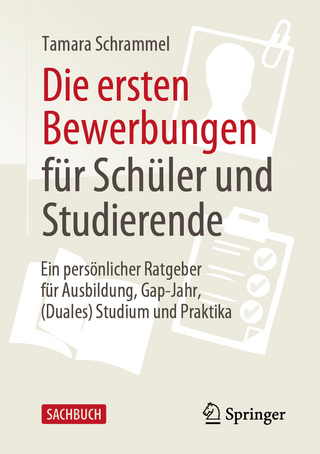
What Psychology Majors Could (and Should) Be Doing
American Psychological Association (Verlag)
978-1-4338-2379-4 (ISBN)
- Titel z.Zt. nicht lieferbar
- Versandkostenfrei innerhalb Deutschlands
- Auch auf Rechnung
- Verfügbarkeit in der Filiale vor Ort prüfen
- Artikel merken
This book will help undergraduate psychology students gain a competitive advantage for life after college, whether their plans include graduate school or work.
Professional research experience remains the most important avenue for fostering and demonstrating the skills that employers and grad schools want—skills like writing, public speaking, and statistical reasoning. Thus, the authors emphasize ways to get involved in scholarly research.
Updated and expanded, the second edition of What Psychology Majors Could (and Should) Be Doing includes tips for writing CVs and personal statements, empirically validated strategies for succeeding in classes, and guidance to help students think about their options after college. This consummate guide will help students get the most out of your psychology degree!
Paul J. Silvia, PhD, is a social-personality psychologist at the University of North Carolina at Greensboro. He has served as the director of the department's honors program, and he teaches undergraduate courses on creativity, personality, academic writing, and professional skills. His other books include How to Write a Lot: A Practical Guide to Productive Academic Writing (2007) and Exploring the Psychology of Interest (2006). Peter F. Delaney, PhD, is a cognitive psychologist at the University of North Carolina at Greensboro and former director of undergraduate studies in the psychology department. He has won several teaching awards and taught thousands of students, and he conducts laboratory research on human memory and learning. Stuart Marcovitch, PhD, studies cognitive development at the University of North Carolina at Greensboro. He was the long-time faculty advisor for Psi Chi — the national honor society for psychology — and has been involved with continuously improving the undergraduate curriculum, especially the statistics and research methods components.
Preface
Introduction
Chapter 1: Choosing Your Research Focus
Chapter 2: Finding Research Opportunities
Chapter 3: Succeeding in Your Classes
Chapter 4: Getting More Out of Statistics
Chapter 5: Finding and Understanding Research Articles
Chapter 6: Writing Research Papers
Chapter 7: Getting Involved Outside the Lab and Classroom
Chapter 8: Attending Academic Conferences
Chapter 9: Presenting a Research Poster
Chapter 10: Presenting a Research Talk
Chapter 11: Making a CV
Chapter 12: Writing Personal Statements
Chapter 13: Thinking About the World of Work
Chapter 14: Understanding Graduate School Epilogue
Appendix: Good Books for Your Professional Library
References
Index
About the Authors
| Erscheinungsdatum | 03.12.2016 |
|---|---|
| Verlagsort | Washington DC |
| Sprache | englisch |
| Maße | 178 x 254 mm |
| Themenwelt | Sachbuch/Ratgeber ► Beruf / Finanzen / Recht / Wirtschaft ► Bewerbung / Karriere |
| Geisteswissenschaften ► Psychologie ► Allgemeines / Lexika | |
| Geisteswissenschaften ► Psychologie ► Allgemeine Psychologie | |
| Sozialwissenschaften ► Pädagogik | |
| ISBN-10 | 1-4338-2379-9 / 1433823799 |
| ISBN-13 | 978-1-4338-2379-4 / 9781433823794 |
| Zustand | Neuware |
| Haben Sie eine Frage zum Produkt? |
aus dem Bereich


